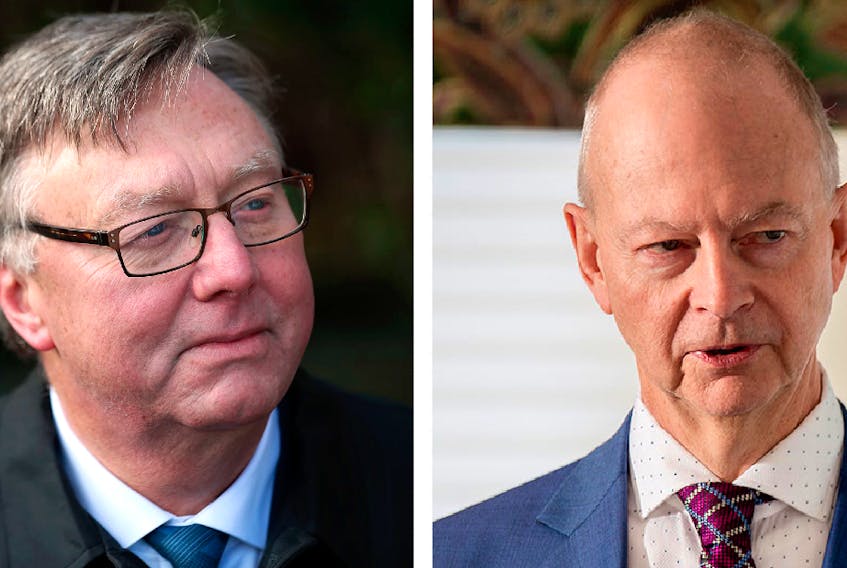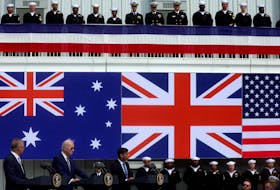While fireworks were few at their first debate, PC leadership hopefuls Ches Crosbie and Tony Wakeham laid out different punishments for politicians who do wrong.
Crosbie and Wakeham brought their race to Memorial University on Thursday, with Crosbie referencing an “Honesty Act” he intends to propose if he leads the government after the 2019 provincial election.
The proposed act, according to Crosbie’s campaign website, would “penalize politicians and political parties that make dishonest statements or promises. Politicians must be held responsible for the things they say — and be held so in law, enforced by courts, and come at a cost to them (rather than the taxpayer) if they break their word.”
While the proposed measure might sound similar to a commission of government — when seven judges were put in place in 1934 to manage the province’s state of affairs — Crosbie says an independent take on legislation by the courts is the best option for the province.
“In my concept, judges are independent. They’re probably the most independent people for government to go to as to whether a politician has violated a piece of legislation, like the Honesty Act,” said Crosbie.
“That’s my concept of it, but the exact details would be ironed out by a committee of the House.”
Wakehan says he’s not convinced Crosbie’s proposal would work.
“I’m not sure. I’m not in favour of anything that’s going to add another level of bureaucracy,” he said.
Meanwhile, Wakeham maintains that recall legislation — an idea brought forward by former MHA Steve Kent as a private member’s motion a year ago — is an essential part of his plan for political accountability.
Recall legislation would grant voters the power to evict their MHA from their seat, should a majority oppose him or her. More than that, Wakeham says, when an MHA crosses the floor, they should run the risk of recall.
“We’ve got a number of people who are sitting in the House of Assembly who are going back and forth. Maybe it’s time people in the district will decide, ‘hey, we don’t want that.’ We won’t have to wait four years.”
Wakeham says when the government considers a major decision, enters into a long-term contract or plans to sell significant government assets, the people should get their say.
“I intend to introduce legislation to make it mandatory to go back to the people of the province so that any government that wants to enter into a long-term contract or sell off major assets, will have to go back to the people of the province,” Wakeham said.
“That could be a plebiscite, a referendum. It could be binding or non-binding. But I truly believe that the people of the province deserve that opportunity.”
Keeping with a populist theme, Crosbie made allusion to the “deep state” at Nalcor in his answer to the first question of the day about the deficit.
Crosbie says he wasn’t trying to evoke U.S. President Donald Trump with the reference.
“It’s just by chance that Trump used that expression when he was talking about the FBI. He’s trying to set the FBI up as an enemy. I’m just trying to draw attention to the fact that all too often, the politicians are taking the orders from Nalcor and not the other way around,” Crosbie said.
“Nalcor in some ways may have been misleading to the political level of government. We’re going to find out more about that in the course of the (Muskrat Falls) inquiry.”
On issues like health care, the economy, Muskrat Falls and regionalization, the candidates agreed with each other more than they differed. Crosbie says he expects the leadership decision will come down to personality and experience.
“There’s a core of common values because we are members of the Progressive Conservative party. In that sense, we’re both conservative and progressive. Conservative on fiscal matters and progressive on social matters. After that, you have to leave something for live experience and values,” Crosbie said.
“We both have different skill sets, perhaps complementary skill sets.”
Twitter: DavidMaherNL









